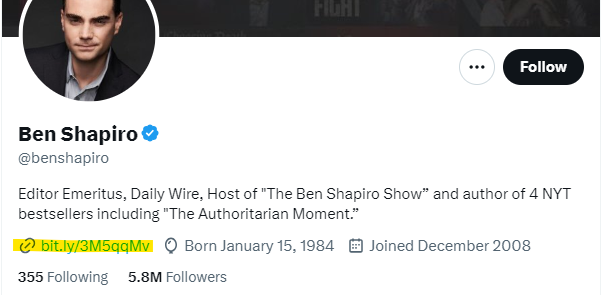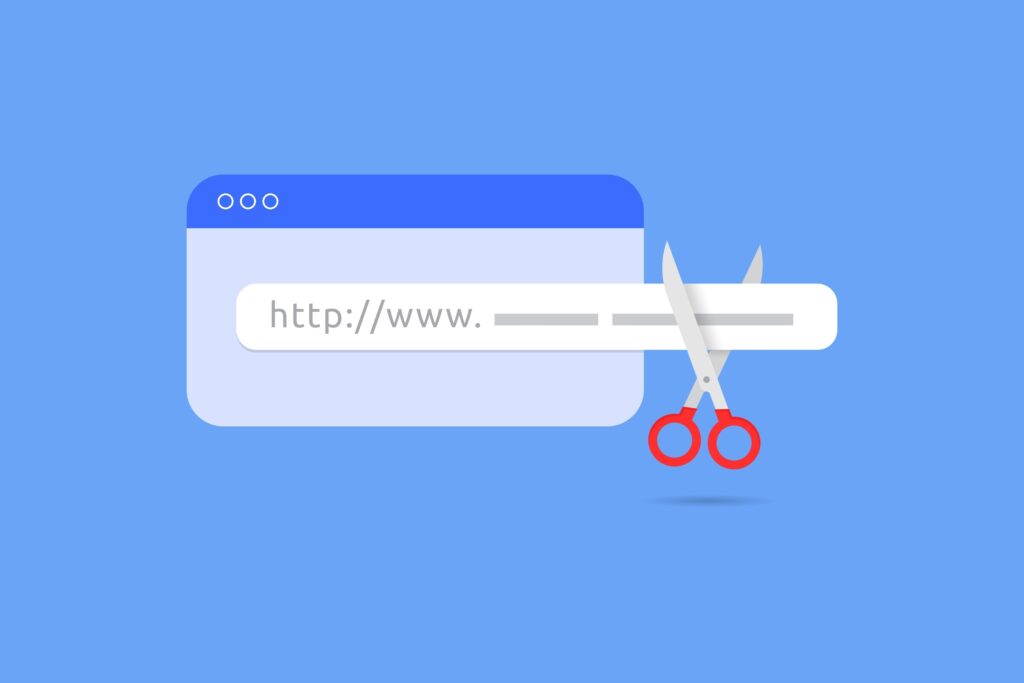What Is A Vanity URL?
Vanity URLs have been around for a few years now, but they have become much more popular recently. Celebrities like Hugh Jackman and Brittney Spears were among the first to use vanity URLs for their personal brands. It didn’t take long before companies realized that vanity URLs could be powerful marketing tools for them, too.
Many companies in a variety of industries are starting to use them for marketing purposes. However, the practice has into yet become ubiquitous. This means that you may be able to get a leg up on your competitors if you implement an effective vanity URL strategy.
If you are considering implementing a vanity URL strategy, you should use an agency like Marketing-Jive that specializes in this sort of work. However, it is still important that you have a basic understanding of Vanity URLs so that you can work with your agency more effectively.
Keep reading to learn more about how vanity URLs are used and why they should be an important part of your marketing strategy.
The Difference Between Vanity URLs & Short Links
It is quite common for people to confuse vanity URLs and short links. In fact, these terms are sometimes used interchangeably. However, vanity URLs and short links are quite different.
Short links are simply links created using a URL shortening service. These services take long links and shorten them by creating a new URL which consists of the service’s domain name and a random alphanumeric string. This service can be quite useful if you are dealing with extremely long URLs.
Many link shortening services offer a paid option where you can create a custom URL. You can include your company’s name in the URL slug. For example, a paid link shortening service might allow companies to create links like www.linkshortening.com/ABCCorp instead of links like www.linkshortening.com/j209fn2h. This does allow companies to so some limited branding, but this is still not a vanity URL.
A vanity URL allows you to create your own domain name, choose a relevant top-level domain, and create a custom URL slug. This provides numerous marketing benefits, from an SEO boost to more memorable branding.
How Do I Create A Vanity URL Link?
If you want to create your own vanity URL, you’ll have to find a high-quality domain name provider. Unfortunately, there are quite a few shady domain name providers out there. Finding a reputable one on your own can be difficult.
It’s best to go with an established marketing agency like Marketing-Jive. They can create vanity URLs for you (with your input, of course). Not only will they be able to select a reputable domain name provider, but they can also help you create your vanity URL so that it gives your marketing efforts the biggest boost.
Domain Name
As a general rule, your domain name should be the name of your company. This is important because you need to get your brand into people’s minds as soon as they begin reading the URL. However, It is possible that your company’s name may not be an available domain name.
If your company’s name is not an available domain name, you should select a domain name that includes both your company’s name and one additional word that is relevant for your company’s products or services. If possible, this additional word should be one of the main keywords your company is trying to rank for. This will give you an additional SEO boost. For example, if your company is named ABC Corp and it operates within the trucking industry, “ABCTrucking” would be a good domain name for a vanity URL.
Top-Level Domain
The top-level domain (TLD) is the text string after the dot. For example, .com is the most well-known TLD. However, the TLD in a vanity URL should not be a standard TLD like .com or .net. This is because the TLD is an important part of the branding of the URL. It is best to select a TLD that is relevant to the page that the link sends people to. For example, ABC Corp. might want to use the TLD .blog for links to the company blog. This might look like “ABCTrucking.blog.”

URL Slug
The URL slug is the last part of the vanity URL. It should be a keyword that is relevant to the page. This is important for SEO reasons. For example, a vanity URL with an effective URL slug might be ABCTrucking.blog/freight.
Do Vanity URLs Help SEO?
A well-constructed vanity URL certainly will help SEO. In fact, there are four ways that a good vanity URL can give you an SEO boost. This includes integrating keywords into your vanity URL, getting crawlers to associate keywords with your brand, choosing TLDs that reflect common search terms, and sending “link juice” from your vanity URL to your company’s actual website.
Vanity URLs With Keywords
One of the most important ways that you can get an SEO boost from using a vanity URL is by integrating keywords. You should use the URL slug and even the TLD (if possible) to integrate a keyword into the vanity URL.
Associating Keywords With Your Brand
Google and other search engines send out bots known as “crawlers” that read and categorize virtually every publicly available page on the Internet. One of the things that they link for is what keywords your brand is associated with. By including a keyword in the URL, the crawler will associate this keyword with your brand.

TLDs Can Be Search Terms
Most vanity URLs use their TLDs for branding. For example, “.rocks” is a popular TLD for companies who want to say that their products or services “rock.” However, it might be better to use the TLD for SEO. For example, a company that sells mineral specimens might use the vanity URL “igneous.rocks” to rank higher for this search term.
Redirects Send Link Juice
A properly constructed vanity URL will use a 301 redirect. This will send link juice (SEO benefits from external links) to the target page. If someone has placed a link on their site to your vanity URL, the target page on your actual website will get the SEO benefit.
How Vanity Links Are Used
Companies generally put their vanity links in places where many people will see them. The most common places for vanity URLs include social media, digital ads, and even print publications.

Social Media
Perhaps the most common place to use a vanity URL is social media. This ensures that many people see the vanity URL, which helps the company get its branding across to the widest audience. Also, social media users have extremely short attention spans. Using a vanity URL which is much shorter than the naked link can greatly increase click-through rates.
Digital Ads
It is also common for companies to include vanity links in their digital advertising campaigns. One of the most important aspects of any ad campaign is getting the company’s branding to stick in the viewer’s mind. A branded vanity URL will help companies do that. Also, digital ads frequently have strict character limits. This is a common occurrence when auditing a client’s ads as the start of a Google ads management service. A shorter vanity URL may fit where a naked URL would not.
Perhaps the most underrated place to put a vanity URL is on printed advertising and marketing materials. As vanity URLs are a digital product, most people only think of using them in the digital world. However, they can help make your branding efforts more memorable when used on printed materials. Also, using a short and memorable vanity URL in your printed materials will make it easier for people to correctly type in the URL. This may increase traffic to the target page.
Why Vanity URLs Should Be Used For Marketing
Easier To Remember & Pronounce
One of the most important reasons that vanity URLs should be used for marketing is that they are easy to pronounce and remember. This will lead to your brand sticking in people’s minds far more than if you used a URL with random numbers and letters. Also, the fact that your vanity URL is easier to pronounce will make it more likely that your customers spread this URL through word-of-mouth.
More Powerful Analytics
One of the most overlooked marketing benefits offered by vanity URLs is more powerful analytics. Using a vanity URL to link to a third-party site will allow you to analyze statistics that only the third-party site would have if you do not use a vanity URL. You can also add people who click on the vanity URL to your retargeting list, even if the target page is on a third-party website. You would not be able to do this if you used the naked link to the third-party website.
Better Link Management
If you use naked links to a third-party site or links from a URL shortening service, you do not have full control over these links. There are quite a few problems that may arise. These issues could lead to reduced traffic and may even harm your brand image.
For example, the third-party site may change the URL of the target page. This would break your link. People who click on these links and get an error message may view your brand as unprofessional. Also, a link shortening service may go out of business or otherwise stop supporting your links. This would also break your link and make your brand look unprofessional.
If you use a vanity URL, you can avoid these problems. If the target page is on a third-party site and the site changes the URL, you can simply edit the vanity URL’s target page. You also do not have to worry about a link shortening service messing up your links.
More Trustworthy Links
One of the more underrated marketing benefits of using vanity URLs is that your links will appear more trustworthy. People may be hesitant to click on a link to site that they do not recognize. After all, there is a chance that it may be a spam site or a phishing operation. Obviously, this can greatly reduce click-through rates.
You can avoid this problem by using a vanity URL. People will see that you’re willing to link your brand name to the site, so the trust they have in your brand will transfer to the vanity URL link.
Vanity URLs Best Practices

Integrate Vanity URLs & Your SEO Strategy
It is vital that you integrate your vanity URL keywords with your overall SEO strategy. The keyword that you include in your vanity URL should be one of the target keywords identified by your keyword research process.
Too many businesses simply use their vanity URLs to target the most obvious keywords for their industry. However, these keywords are often extremely competitive, meaning that simply including such a keyword in a vanity URL would likely not be enough to rank for it.
Instead, you should use a vanity URL as part of your strategy to rank for a certain keyword. You should also post content on your website targeting the keyword and get external links to your site from relevant pages.
While a vanity URL may not be enough to rank for a keyword by itself, it could be the difference between making the first page or falling to the second page for a certain search term. This small change could ensure that you get far more traffic.
Make Your Vanity URLs Easy To Understand
When you are creating a vanity URL, it’s vital that you make it easy to understand. While the SEO boost provided by a vanity URL is important, branding is at least as important. This means you should communicate your brand message very clearly in a vanity URL. While being cryptic and mysterious can work with some types of advertising campaigns, it is not a good idea with vanity URLs.
Communicate a single brand message per vanity URL. For example, a sports news site might want to use a vanity URL like sportsnews.best that redirects to their site. A bad example would be the same site using a vanity URL like sportsnews.rocks. This would not promote their brand specifically.
Use Carefully for Maximum Impact
Like all brand messages, vanity URLs should be used carefully to maximize their impact. You don’t want to constantly bombard your social media followers with gimmicky vanity URLs for every single link you share. Your audience would quickly become numb to the branding and start to simply tune it out. It’s a good idea to only use vanity URLs for the most important links your company shares.
It’s Best To Use a Marketing Agency To Create Vanity URLs
Vanity URLs can be a powerful marketing strategy. However, they need to be implemented carefully to make the biggest splash. This can be challenging for a business to do on their own, particularly if they do not have experience using vanity URLs. Our SEO services often include the use of vanity URLs.
It’s best to go with a marketing agency like Marketing-Jive that has extensive experience using vanity URLs. Of course, Marketing-Jive also offers a full selection of marketing services, not just vanity URL creation. Contact our team today to learn more about what we can do for your company.
